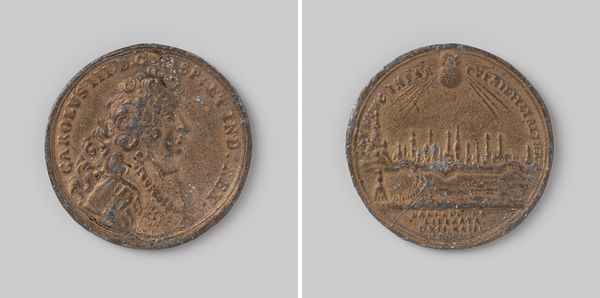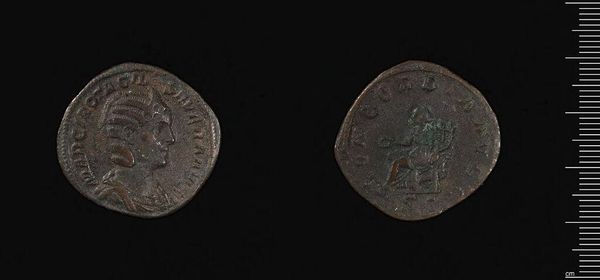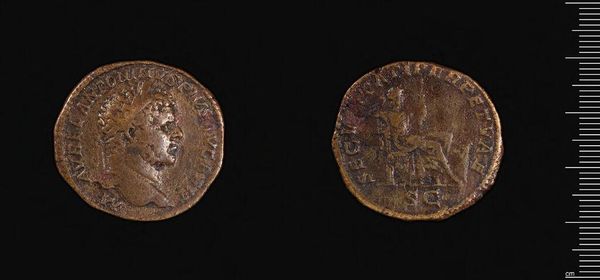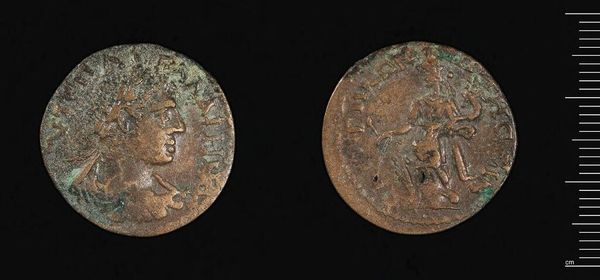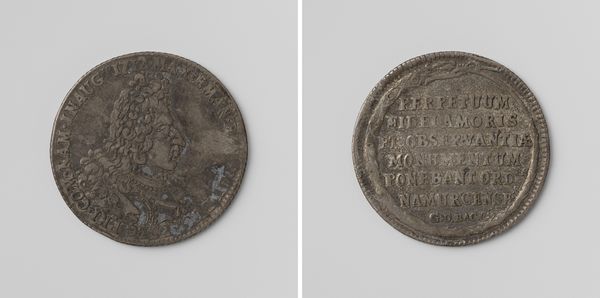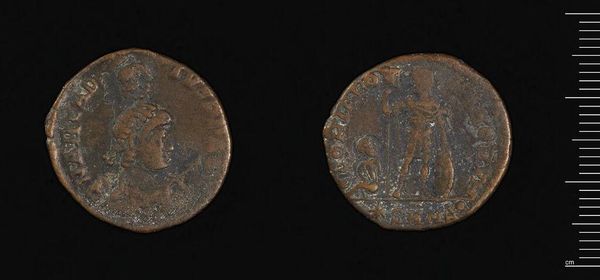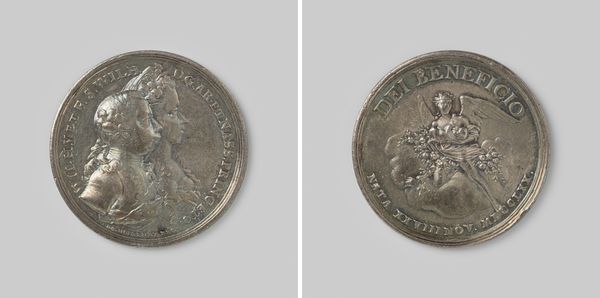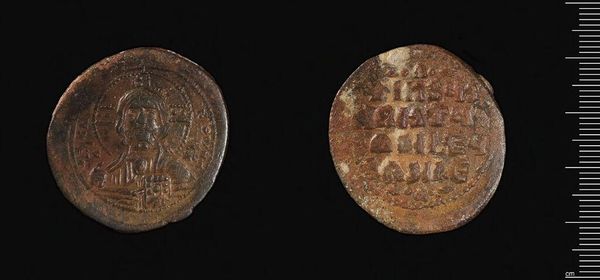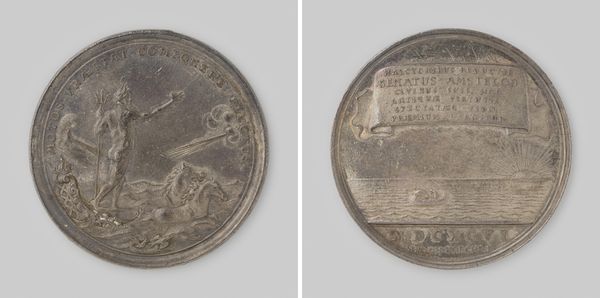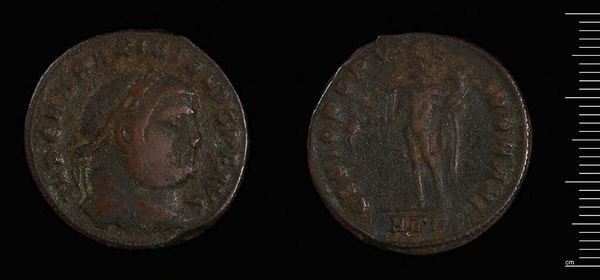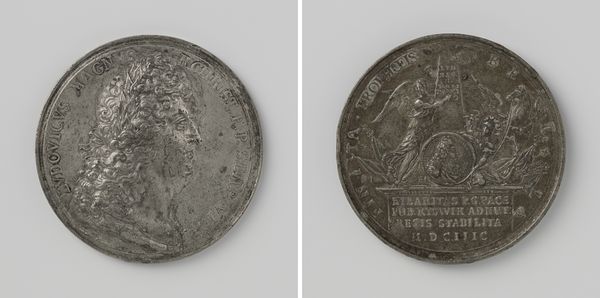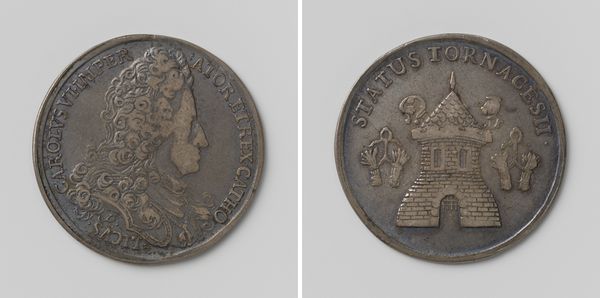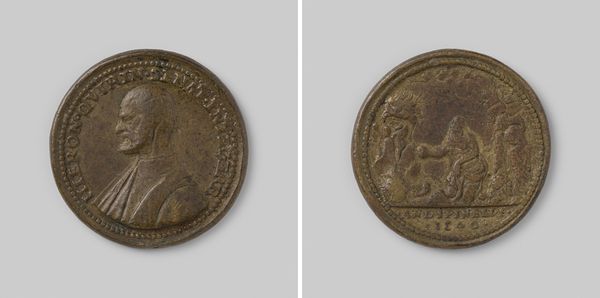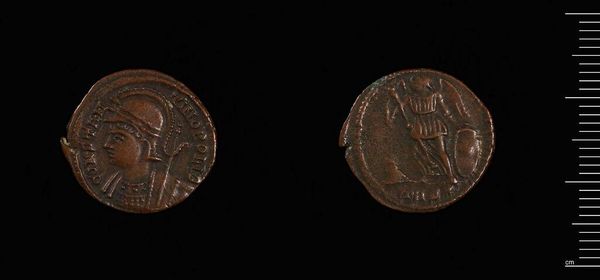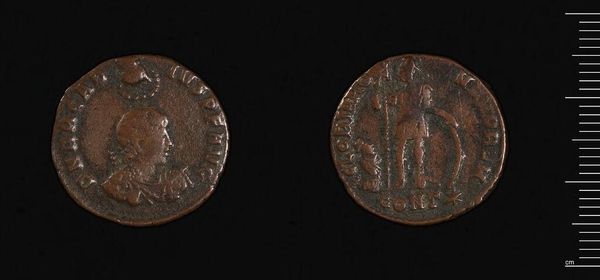![The Altar of Faith on Mount Olympus [reverse] by Giovanni Maria Pomedelli](/_next/image?url=https%3A%2F%2Fd2w8kbdekdi1gv.cloudfront.net%2FeyJidWNrZXQiOiAiYXJ0ZXJhLWltYWdlcy1idWNrZXQiLCAia2V5IjogImFydHdvcmtzL2M5ZDJiOGM3LThmNWQtNDM5ZC1iNmUwLTU1ZGE5MDFhMjdlMi9jOWQyYjhjNy04ZjVkLTQzOWQtYjZlMC01NWRhOTAxYTI3ZTJfZnVsbC5qcGciLCAiZWRpdHMiOiB7InJlc2l6ZSI6IHsid2lkdGgiOiAxOTIwLCAiaGVpZ2h0IjogMTkyMCwgImZpdCI6ICJpbnNpZGUifX19&w=3840&q=75)
The Altar of Faith on Mount Olympus [reverse] 1519 - 1530
0:00
0:00
metal, bronze, sculpture
#
portrait
#
medal
#
metal
#
stone
#
sculpture
#
bronze
#
11_renaissance
#
sculpting
#
sculpture
#
carved
Dimensions: overall (diameter): 3.99 cm (1 9/16 in.) gross weight: 31.46 gr (0.069 lb.) axis: 1:00
Copyright: National Gallery of Art: CC0 1.0
Curator: This bronze medal, created between 1519 and 1530, is titled "The Altar of Faith on Mount Olympus," attributed to Giovanni Maria Pomedelli. It’s quite intricate, wouldn’t you agree? Editor: Immediately, I feel a sense of grounded solidity, despite the Olympian reference. It's not the airy, ephemeral Olympus of myth, but something more earthbound and…dare I say…confined? Curator: Confined how? Editor: Well, consider the mountain, ringed by foliage—almost trapped. The "altar," that stepped tower at its peak, appears more like a fortified keep than a sacred space. It evokes a sense of imposed faith rather than spiritual liberation, wouldn’t you agree? Curator: Interesting. Pomedelli was working in a tumultuous period, during the Reformation. Do you think he sought to symbolize that in art? Editor: Absolutely! Look closely at the word “FIDES” emblazoned above the tower, enclosed with all those carved leaves— “Faith.” It isn't simply declared but asserted. Consider also the base inscribed with “Ioanes Maria Pomed F”, the artist quite literally places his name at the base of the altar on the mountain— perhaps emphasizing the artist as a foundational voice and contributor to faith. The work might reflect not just individual piety, but faith under siege. The circular form of the medal, resembling a coin, further suggests faith as something of value, but perhaps something easily exchanged or corrupted, in need of protection. Curator: It's fascinating how a small, unassuming object like this can speak volumes. The artistry itself is remarkable— such detailed relief work in bronze! What kind of person orders to make themselves one of these? Pomedelli captures light and shadow wonderfully and invites us to contemplate, with almost brutal honesty, these complex questions of religion during that time period. Editor: Exactly. Pomedelli manages to create this miniature world, charged with anxieties and ambiguities that invite closer inspection into that very complicated intersection of personal and political. Curator: Yes. To see faith as something earned and worked through... I really enjoy this more profound invitation to doubt the common consensus. It asks so many beautiful and disturbing questions. Editor: And the intimacy of it—a medal, meant to be held, carried close—brings those large questions of faith right down to the personal level. A tactile reminder, perhaps.
Comments
No comments
Be the first to comment and join the conversation on the ultimate creative platform.
